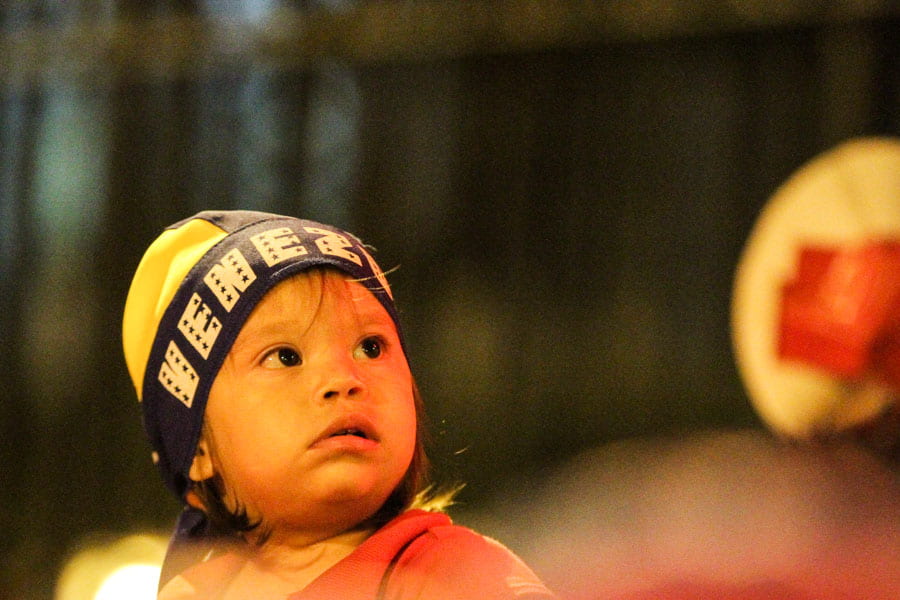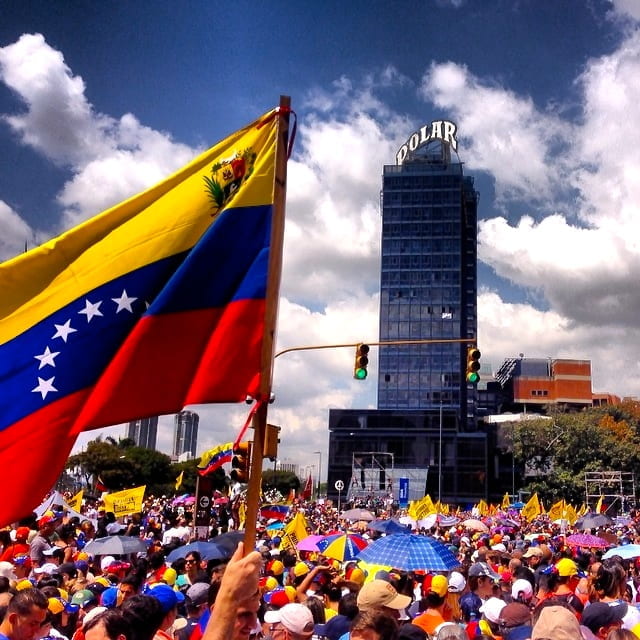
The current president of Venezuela, Nicolás Maduro, was elected in 2013 by a very small margin. During his first term, the Venezuelan economy took a turn for the worst. He was reelected for a second term in 2018, but his opponents feel that the election wasn’t valid because many of the other candidates were made ineligible to run or even jailed, so the National Assembly does not recognize his presidency and considers the presidency vacant. According to the Venezuelan Constitution, in cases of a vacant presidency, the leader of the National Assembly (currently Juan Guaidó) takes over as president. Guaidó has very little political power because the military still supports Maduro.
I first heard about the political and economic unrest in Venezuela when I went on an exchange trip to Spain in May of 2016. My host family had moved to Spain eight months earlier because their jobs had been the first affected by the economic downturn. They were lucky that the dad was a Spanish citizen—it was much easier for them to move to Spain than if none of them had been citizens—but many Venezuelans have not been so lucky.

Since 2015, health statistics have been underreported—if they’ve been reported at all. December of 2016 marked the last report from the Venezuelan Ministry of Health. This report describes an alarming increase in previously eliminated and controlled infectious diseases, such as malaria and diphtheria, and in maternal and infant mortality rates. The report has many alarming statistics, but aside from that, it is the last one to have been published. Additionally, the Health Minister who published the report was fired immediately afterward.
With no one within the country reporting on the health needs and statistics of the people, it is nearly impossible for other countries to give external aid. Additionally, even when aid sent, the Venezuelan government refuses help. Even nongovernmental organizations (NGOs) are forced by law to refuse help: the Supreme Court ruled in 2010 that any NGOs receiving financial assistance from other countries would be committing treason. This has a devastating impact on the citizens as they are not receiving the help that they need.
The situations in the hospitals are dismal. According to a survey conducted by the political opposition, many services in hospitals are not consistently available, if at all, due to lack of supplies. Many supplies have gone missing from public hospitals and clinics, and those being shipped in often are embargoed and never make it past the ports. The reason is unknown, but many suspect it has to do with the corruption of the government. This has forced patients to bring their own medical equipment—which can include anything from medicine to surgical equipment—when going to the hospital, so they know they’ll have what they need. Private clinics, which have most of the supplies they need, ask for payment in US dollars, which means only the wealthiest can get that level of care. This leaves the average citizen without proper medical care in a country where the government is actively keeping lifesaving materials out of the hands of doctors.
Because of the low levels of health care, many diseases are reemerging and worsening. Between 2008 and 2015, there were no cases of diphtheria reported and one case of measles reported. However, in the past three years, over one thousand cases of diphtheria and over six thousand cases of measles have been confirmed. These statistics show a lack of vaccinations in children, which is potentially due to limited vaccines available. Malaria rates, which were once controlled through pesticides, medication, and reduction of mosquito breeding areas, have increased by over ten times from 2009 to 2017. Tuberculosis cases more than doubled from 2014 to 2017, which is even more concerning with the cases of untreated HIV on the rise as well. According to the Human Rights Watch, “Venezuela is the only country in the world where large numbers of individuals living with HIV have been forced to discontinue their treatment as a result of the lack of availability of antiretroviral (ARV) medicines.” 90 percent of HIV positive Venezuelans have to live without ARV medicines, and these people are majorly susceptible to and will be severely affected by the many diseases that are on the rise. Because all of these diseases are on the rise and the limitations of hospitals, maternal and infant mortality rates in Venezuela have risen back to their levels from the 1990s. Venezuela is the only Latin American country where this has occurred.
In addition to the health crisis, there is also a nutrition crisis. The last nutrition data published was in 2007, but many Venezuelans report only eating yuca or a tin of sardines for their one meal of the day. According to the UN’s Food and Agriculture Organization (FAO), 11.7 percent of the population is undernourished, meaning they are not getting enough nutrients. This is severely affecting Venezuelan children; as of March 2018, 17 percent of children under 5 in lower income areas of Venezuela have moderate acute malnutrition (MAM) or severe acute malnutrition (SAM)—a 7 percent increase from February 2017 and a level of crisis. According to WHO, the fatality rates for children under the age of five who have SAM and MAM are between 30-50 percent, so it is important that children not only have access to healthy food, but that hospitals also have access to the necessary treatments, and at this time that is not generally the case in Venezuela. Pregnant women are also affected by MAM and SAM, which can lead to adverse outcomes during pregnancy, childbirth, and the child’s infancy.
Venezuela is not the only country that is experiencing a health and food crisis. However, many countries have these issues due to lack of resources, funding, or aid. While Venezuela is experiencing an economic downturn, they have been offered plenty of aid, which they have repeatedly refused. Additionally, the lack of reporting health and nutrition statistics is concerning for many reasons. First, this most likely means that no one, including the Venezuelan government, knows the extent to which the Venezuelan citizens are suffering. Second, it shows that the Venezuelan government is willing to conceal the level of suffering experienced by its citizens in order to protect their image, instead of asking for assistance; it sends a message that they do not care about the wellbeing of the citizens they are supposed to serve and protect. The UN continues to urge the Venezuelan government to let them send assistance, warning that their situation can become much worse than it already is, but they continue to refuse and push back on any assistance offered and put the lives of their citizens on the line.
